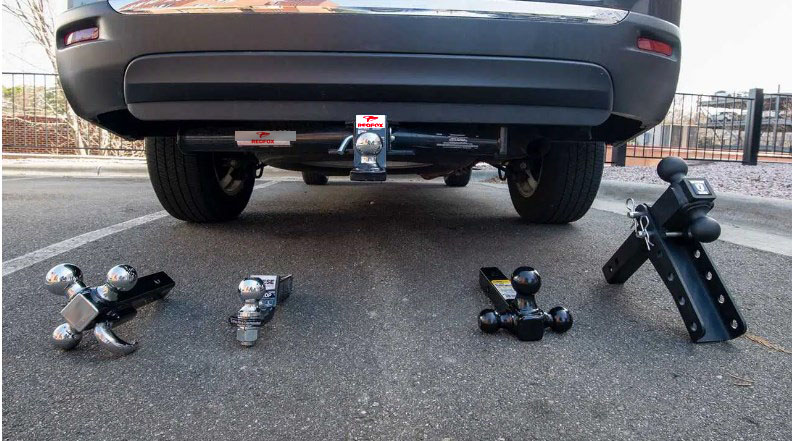2-5/16 Inch Hitch Ball
1. RELIABLE STRENGTH. This trailer hitch ball is rated to tow up to 6000 pounds gross trailer weight. It is constructed from hot-forged steel for reliable towing strength and confidence on the road ahead
2. PRECISE FIT. This tow hitch ball has a 2-5/16 inch diameter to fit virtually any 2-5/16 inch coupler. The ball shank has a 1 inch diameter and measures 2-5/8 inches long for secure attachment to a trailer hitch ball mount
3. CORROSION-RESISTANT. For long-lasting resistance to rain, dirt and rust, this hitch ball is finished in a durable, protective chrome plating, zinc plating and black finish are also avaliable
4. SECURE INSTALL. For dependable strength, this trailer hitch ball comes with a zinc-plated hex nut and helical lock washer. It also has fine threads for an enhanced hold on the ball hitch
5. DISPLAY PACKAGE. This hitch ball is with environmental display shell package to meet with customer’s need, customer’s logo & label and be put on. Other package is also avaliable, we will make as per customer’s request
6. Standard: US SAE.J684 Standard
There are several reasons why you might choose a hitch ball for your car:
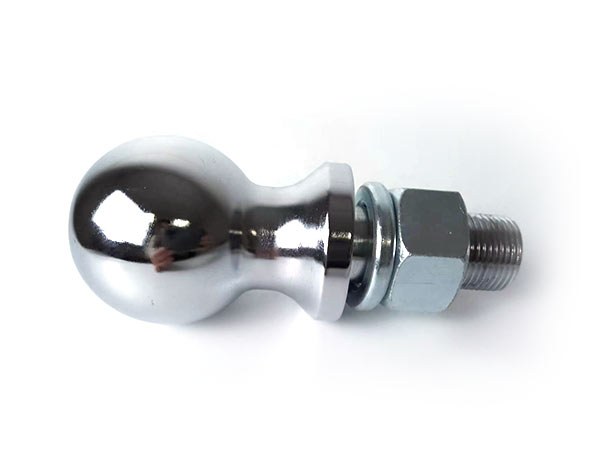
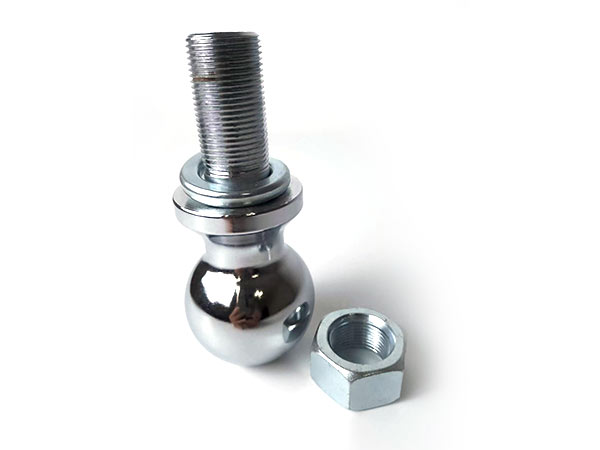
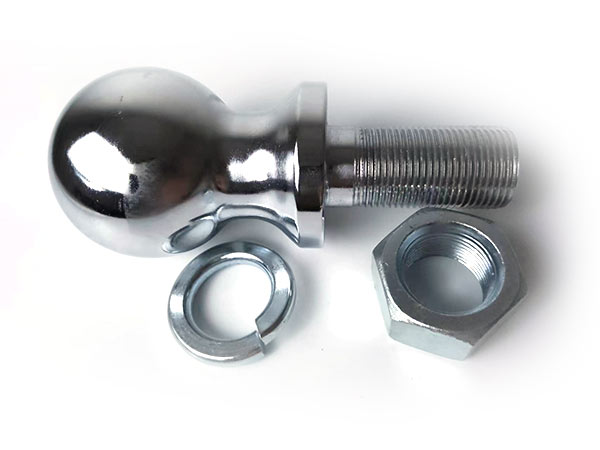
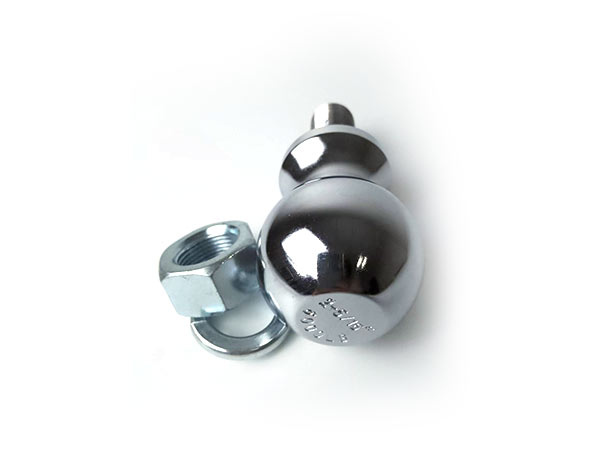
1.Versatility: A hitch ball allows you to tow a wide range of trailers or other vehicles, such as boats, RVs, or campers. It provides a secure and reliable connection between your vehicle and the trailer.
2.Convenience: If you frequently need to transport items or go on outdoor adventures, having a hitch ball installed on your car makes it easy to hitch and tow without the need for additional equipment or modifications.
3.Safety: A properly installed hitch ball ensures a secure connection between your vehicle and the trailer, minimizing the risk of accidents or trailer detachment while on the road. It provides stability and control, making towing safer and more manageable.
4.Weight distribution: Some vehicles require a hitch ball to properly distribute the weight of the load being towed. This helps maintain the balance and stability of both the towing vehicle and the trailer, making for a smoother and safer ride.
5.Cost-effective: Investing in a hitch ball is often more cost-effective than renting a truck or hiring a professional towing service whenever you need to transport something. It gives you the freedom and convenience to tow items yourself whenever necessary.
It's important to note that selecting the right hitch ball for your car requires considering factors such as the weight capacity of your vehicle, the type of trailer you're towing, and the hitch receiver's size. It's recommended to consult your vehicle's manual or a professional for guidance on choosing the appropriate hitch ball.
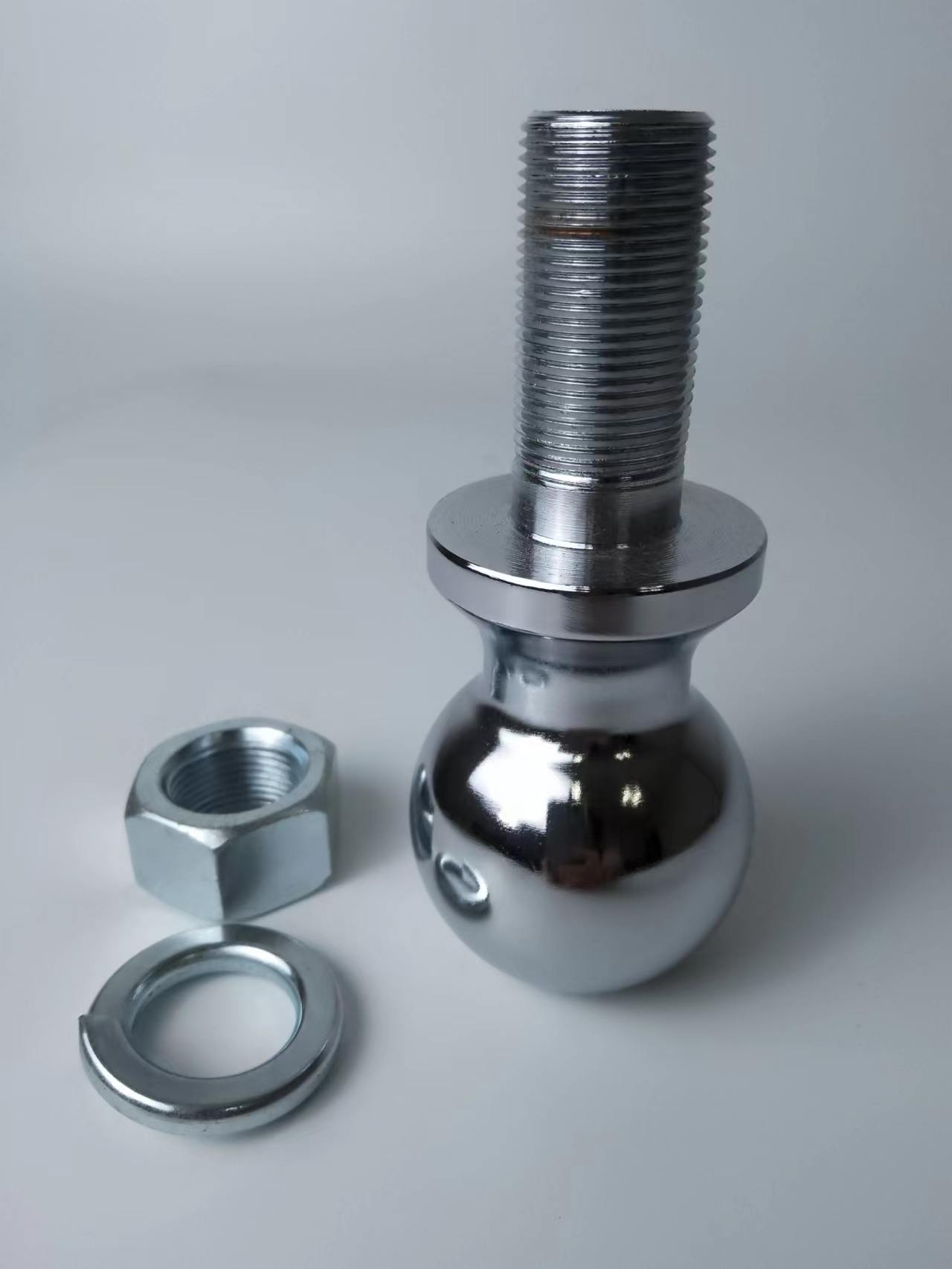
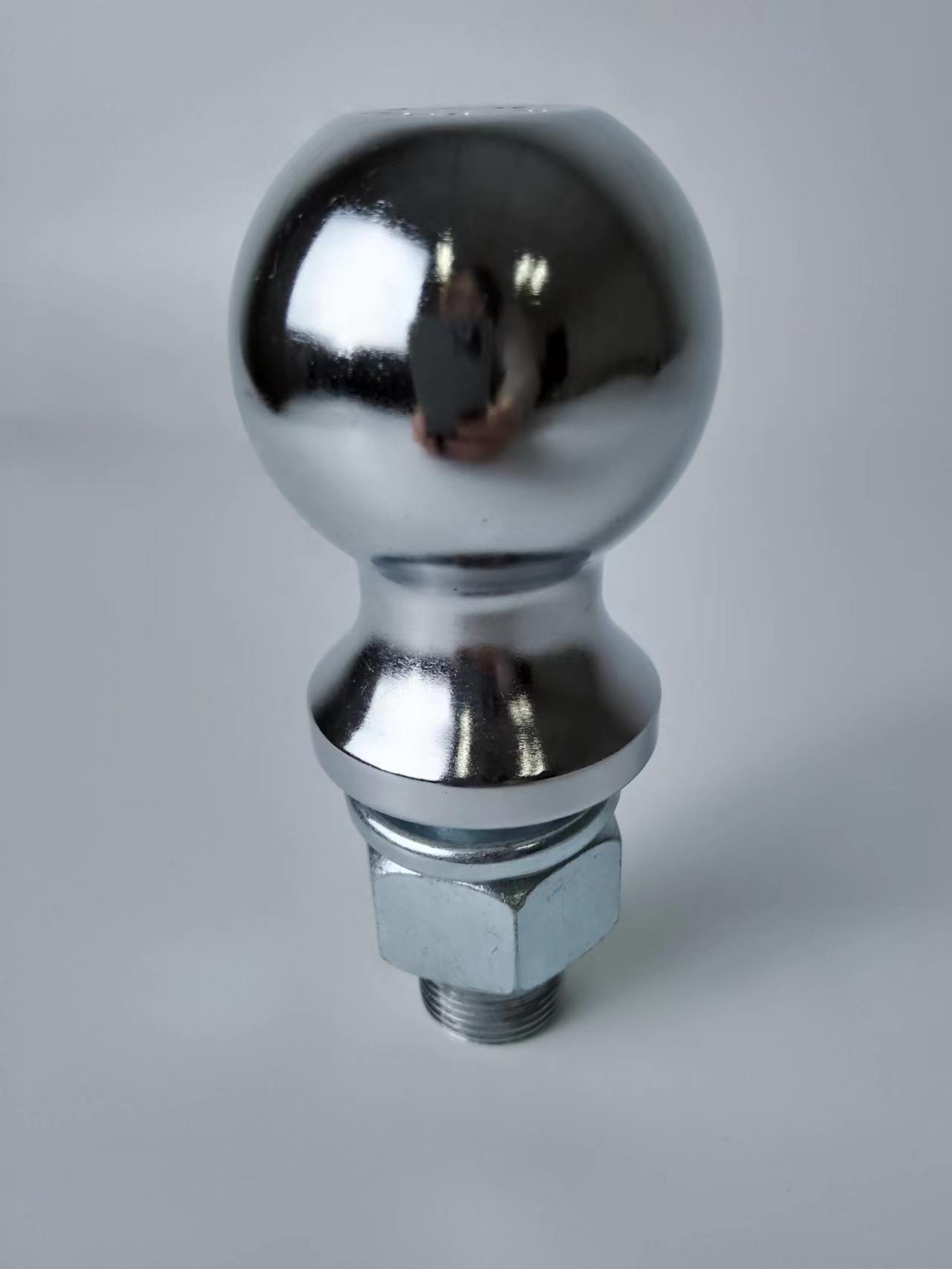
Manufacturing trailer hitch balls typically involves the following steps:
1.Raw material preparation: The raw material used for trailer hitch balls is usually high-strength steel. This steel is sourced and prepared in the form of billets or bars.
2.Cutting and machining the blank: The first step in manufacturing is to cut the steel to the desired length and shape the blank for the hitch ball. This is usually done using a combination of sawing, drilling, and turning operations.
3.Forming the ball shape: Once the blank is prepared, it undergoes a forming operation to shape it into a ball. This process can be accomplished using techniques such as forging, casting, or cold heading. Each method has its advantages and is chosen based on factors such as cost, quality requirements, and production volume.
4.Heat treatment: After forming, the hitch ball is heat treated to enhance its mechanical properties. This involves heating the ball to a specific temperature and holding it for a certain period, followed by controlled cooling. Heat treatment helps to improve the strength and toughness of the hitch ball.
5.Threading and finishing: The hitch ball requires a threaded hole to attach it to the trailer coupler. This threading operation is typically performed using a lathe or threading machine. After threading, the ball is finished by grinding or polishing to achieve the desired surface finish.
6.Testing and inspection: Once the manufacturing process is complete, the hitch balls undergo various tests and inspections to ensure they meet industry standards and specifications. This includes dimensional checks, load testing, and visual inspections.
7.Coating and packaging: The final step is to apply a protective coating, such as chrome plating or powder coating, to enhance the hitch ball's corrosion resistance. The balls are then carefully packaged for shipment to customers.
It's important to note that the manufacturing process may vary slightly depending on the manufacturer and the specific requirements of the trailer hitch balls being produced.
